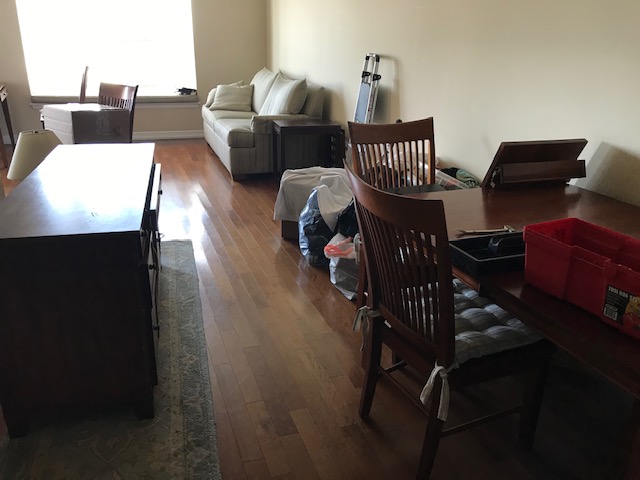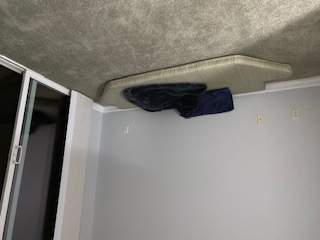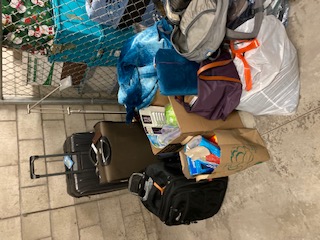I gave up paper dolls at an embarrassingly advanced age, because I have always loved telling stories. As I grew older, I spun fantasies about eternal bliss with every boyfriend I was remotely serious about, down to the names of our children. When I actually was married with children, the fantasies shifted to vacation brochures about bicycling at the edge of the Sahel, barge travel in Burgundy, and yes, cruising. All of this had to be done in the lap of luxury, of course—hey, it was fantasy, so why not?
When life hit me with a ton of bricks, the stories I told myself were about the happiness I believed I could eventually recreate. When I felt mismatched with several jobs, I did the same. Looking back, I can see a shift in thinking as I grew older, from fantasies to real-life stories that were in my control to shape.
Some of what were once fantasies began to come true. At forty, I started traveling a little. I saw Paris for the first time, and Florence. At fifty, I finally found a job I loved, as a community college professor. Also in that decade, I began to channel my fantasies into writing historical fiction. By sixty, I was well into in a beautiful relationship that made me realize what I could have been looking for all along. Little by little my dreams came into better sync with my resources, a true blessing. Now, as Sinead O’Connor beautifully puts it, I do not want what I haven’t got.
Retirement was eye opening for me because it gave me a chance to think anew about what to do with my time. My fantasies of seeing the world materialized in the form of more potential cruise bookings than I could handle. Suddenly I could say yes to any cruise any time without a thought to the academic year. I have spent most of the past few years in a daze about what I have actually been able to make happen, from Borobudur to Bangkok, the Côte d’Azur to the coast of Chile.
Then in 2020, as for all of us, my life shrank overnight. For so many of us, dreams have been put on hold, but for me, it’s been a opportunity, now that the buzz of my life over the past few years has died down, to pay attention to what my dreams are at seventy.
I am still so eager to get back to seeing the world, but maybe I am ready for different kinds of exploration. I have seen the edges of every continent except Antarctica, but I have not ventured farther from port than can be done on a day trip. Land travel sounds excellent and it doesn’t need to be exotic. I have seen very little of the United States even though I have been in a hundred foreign countries. I have not indulged yet the most do-able of fantasies, as my friend Jane did when she went off to live for a month in Spain. How about Italy, or France, I wonder, or someplace more exotic—just for the experience?
The most momentous shift in my thinking has been about how I want to live. Seven years ago, I needed a sense of security as I rebuilt my life after Jim died, so I made the logical decision to buy a condo while the market was at a low. It was a sensible move at the time, and financially I don’t regret it, but I have found, as I examine the foundations of my happiness, that I am not really cut out for home ownership. It has been, to be blunt, a pain in the ass. I am paying for something i am not using a lot of the time, and getting and keeping renters has its own stresses. I need to be free of that obligation to live in a happy mental space.
Since this pandemic forced me into a world the size of my condo, my thinking about my comfort zone has shifted radically. As a result of cruising as much as I have the last few years, I now feel totally at home in temporary spaces. I am fine living out of suitcases for months at a time. I don’t need to be surrounded by possessions. I don’t need a bed that feels exactly the same every night. The pleasant sense of cocooning is internal now, not reliant on a settled place to call home.
Suddenly, with this realization, life opened up. I don’t need a condo. I don’t need a permanent address. I don’t need my furniture, or most of what I’ve been carting around from one storage spot to another without ever looking at or using. More than indifference about such things, I actively needed to get rid of them in order to discover who I am at seventy and who I want to be.
So I leapt. In a few days, the movers will take my furniture to my son, who is also setting up a new chapter of his life in Phoenix. Almost everything I owned is gone, except for a few boxes of files and some memorabilia I plan to pass on. Note to self: Never again buy anything it will be a pain to get rid of. Seal that promise in blood.
My condo will be painted and repaired, then put on the market. I am past the tipping point, and I am feeling the beginnings of relief. When a few details fall into place I will be on the road to British Columbia. I don’t have a date to leave, nor a place to stay, but I am far less stressed about this than I was about what to do with some beat-up bookshelves and old IRS files, and what time the movers can arrive. Shredding, shedding, and fretting—what has been taking up my life these days is now almost in my rear view mirror, as I find out what life looks like for the me I am becoming.







